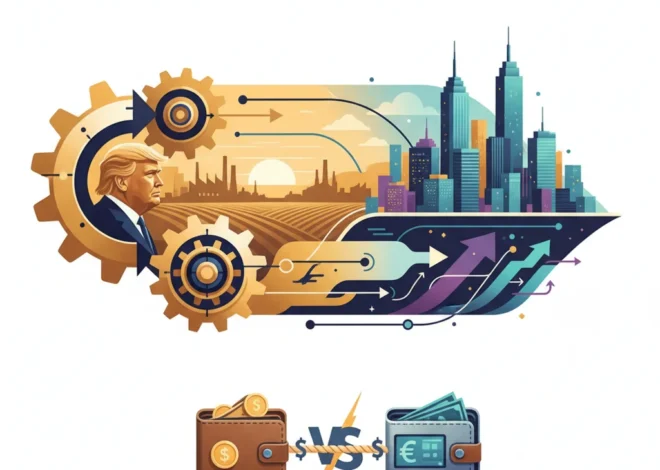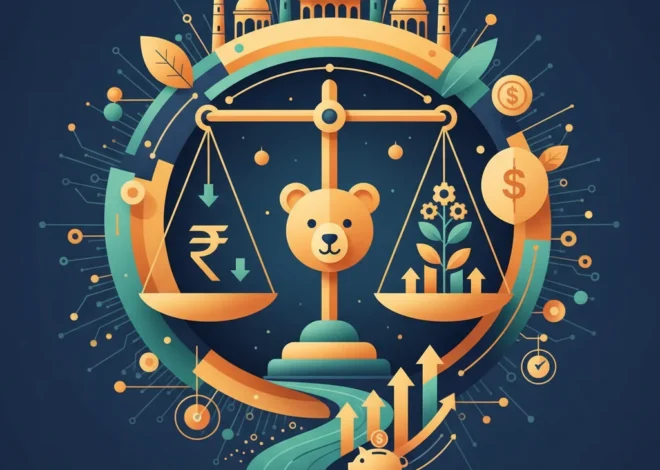
Decoding the Economics of Rage: Martin Wolf on Why Populism is a Red Flag for Global Finance
The political earthquakes of the last decade—from Brexit to the rise of Donald Trump—were not random tremors. They were the seismic release of decades of building pressure. Across the Western world, a wave of populism has reshaped politics, challenging the very foundations of the post-war liberal order. But to truly understand this movement and its implications for the global economy, investors, and business leaders, we must look beyond the fiery rhetoric and ask a fundamental question: What are the economic roots of this rage?
Few are better equipped to answer this than Martin Wolf, the chief economics commentator at the Financial Times. In a compelling discussion, Wolf dissects the phenomenon, arguing that modern populism is not merely a revolt of the “left behind” but a direct consequence of a broken pact between the elites and the populace—a failure that culminated in the 2008 global financial crisis. This analysis provides a critical framework for anyone navigating the volatile intersection of politics and finance today.
The Broken Promise: A Crisis of the Elite
At the heart of Wolf’s diagnosis is a powerful and unsettling idea: the populist surge is a verdict on the performance of the global elite. For decades, an implicit deal underpinned democratic capitalism. The public would entrust economic and political power to a technocratic, educated, and business-oriented class. In return, this elite was expected to deliver broad-based prosperity, stability, and competent governance. For a time, it worked.
However, as Wolf argues, this pact began to fray long before it finally snapped. The key turning point was the 2008 financial crisis. This was not just an economic downturn; it was a catastrophic failure of the very elite entrusted with safeguarding the system. The crisis revealed a banking and financial sector that was, in Wolf’s view, “out of control,” taking colossal risks that ultimately brought the world economy to its knees. The aftermath—where ordinary citizens faced austerity and foreclosures while the institutions responsible were bailed out—shattered the remaining vestiges of trust. It created a potent narrative: the elites look after their own, while everyone else pays the price.
The Rise of “Plutocratic Populism”
The populism that emerged from the ashes of 2008 is a peculiar hybrid, which Wolf labels “plutocratic populism.” This isn’t the left-wing populism of wealth redistribution. Instead, it’s a right-wing movement that masterfully combines nationalist and culturally conservative rhetoric that appeals to a disaffected base with an economic agenda—primarily tax cuts and deregulation—that overwhelmingly benefits the wealthiest strata of society.
This fusion is both contradictory and politically brilliant. It channels legitimate economic grievances into cultural battles, effectively diverting attention from policies that may exacerbate the very inequality that fueled the anger in the first place. Below is a breakdown of how this new political force operates compared to more traditional models.
| Feature | Traditional Economic Populism | Plutocratic Populism (Wolf’s Definition) |
|---|---|---|
| Primary Target | Economic elites, corporations, the “1%” | Cultural elites, “globalists,” immigrants, established institutions |
| Core Economic Policy | Wealth redistribution, nationalization, increased social spending, protectionism | Tax cuts for corporations and the wealthy, deregulation, selective protectionism |
| Rhetorical Focus | Class struggle, economic justice, workers’ rights | National sovereignty, cultural identity, “making the country great again” |
| Primary Beneficiaries | Theoretically, the working and middle classes | In practice, the wealthy and corporate asset holders |
This model creates a feedback loop where the political base feels heard on a cultural level, even as the economic policies may fail to address, or even worsen, their financial precarity. For those in investing and finance, understanding this dynamic is crucial, as it leads to unpredictable policy environments driven more by political signaling than by sound economics.
Beyond the Headlines: Why Record Carbon Emissions Are a Critical Red Flag for the Global Economy
The Deeper Drivers: De-industrialization and Rentier Capitalism
The 2008 crisis was the trigger, but the gunpowder had been accumulating for decades. Wolf points to two deep structural shifts in Western economies.
First is de-industrialization. This isn’t just about the loss of manufacturing jobs; it’s about the loss of a specific type of job that offered stable, well-paid employment and a strong sense of identity and status, particularly for men without a college degree. As these jobs vanished, replaced by lower-paid service work or nothing at all, entire communities were hollowed out, leaving behind a legacy of economic and social despair. According to Wolf, this disappearance of “good jobs for people who weren’t academic stars” is a central, and often overlooked, part of the story (source).
Second is the rise of what economists call rentier capitalism. This describes an economy where an increasing share of wealth is generated not from producing new goods or innovative services, but from controlling assets that extract “rent.” This includes everything from intellectual property and patents to, most importantly, financial assets and property. The growth of the financial technology, or fintech, sector, while innovative, has also contributed to the rapid financialization of the economy. In such a system, wealth flows disproportionately to those who already own capital, while wages for labor stagnate. This shift, as Wolf implies, fundamentally alters the nature of the economy from a positive-sum game of creation to a zero-sum game of extraction.
Here’s a summary of the key drivers identified in the analysis:
| Economic Drivers | Cultural & Social Drivers |
|---|---|
| The 2008 Financial Crisis & subsequent bailouts | Loss of status and dignity from job displacement |
| Stagnant median wages for decades | Feeling of being ignored by “coastal elites” |
| De-industrialization and loss of manufacturing jobs | Resentment over immigration and demographic change |
| Rise of “rentier capitalism” and financialization | Sense that national identity and values are under threat |
Beyond Beijing: Why Australian Rare Earths Are the Hottest Ticket in Geopolitical Investing
The Path Forward: Is There a Cure?
If the diagnosis is a crisis of the elite and a broken social contract, then the solution, Wolf suggests, must be a fundamental rewiring of our economic and political systems. This is not about tweaking policy at the margins; it’s about building a new, more inclusive consensus. The challenge is monumental, but the core ideas revolve around a few key areas:
- Investing in People and Places: This means significant public investment in education, skills training, and regional development to create economic opportunities in the areas hollowed out by globalization and de-industrialization.
- Reforming Finance: The financial system must be made a servant, not a master, of the real economy. This involves stronger regulation to curb excessive risk-taking and ensuring that the banking sector is more resilient to prevent a repeat of 2008.
- Tackling Rent-Seeking: Policies must be designed to reward genuine innovation and production over passive asset ownership. This could involve changes to tax law, intellectual property rights, and competition policy.
The difficulty, of course, is political. The very populist forces that have risen in response to these problems often advocate for policies—like further deregulation and tax cuts for the wealthy—that would arguably entrench them. Breaking this cycle requires a level of political courage and long-term vision that has been conspicuously absent.
Beyond the Dollar: Decoding China's Strategy to Reshape Global Finance
Conclusion: A Warning for the Future of Capitalism
Martin Wolf’s analysis is a sobering reminder that economic statistics are not just numbers on a spreadsheet; they are a reflection of people’s lives, hopes, and fears. When an economic system consistently fails to deliver broad-based prosperity and security, its political legitimacy will inevitably erode. Populism is the fever, not the disease. The disease is a form of capitalism that has become detached from the public good, rewarding insiders and asset-holders at the expense of the wider community.
For investors, executives, and finance professionals, the message is clear: political risk is now inextricably linked with economic risk. The stability of the global economy depends not just on central bank policy or corporate earnings, but on our collective ability to forge a more inclusive and resilient social contract. Ignoring the economics of rage is a luxury we can no longer afford. The future of democratic capitalism itself may be at stake.


